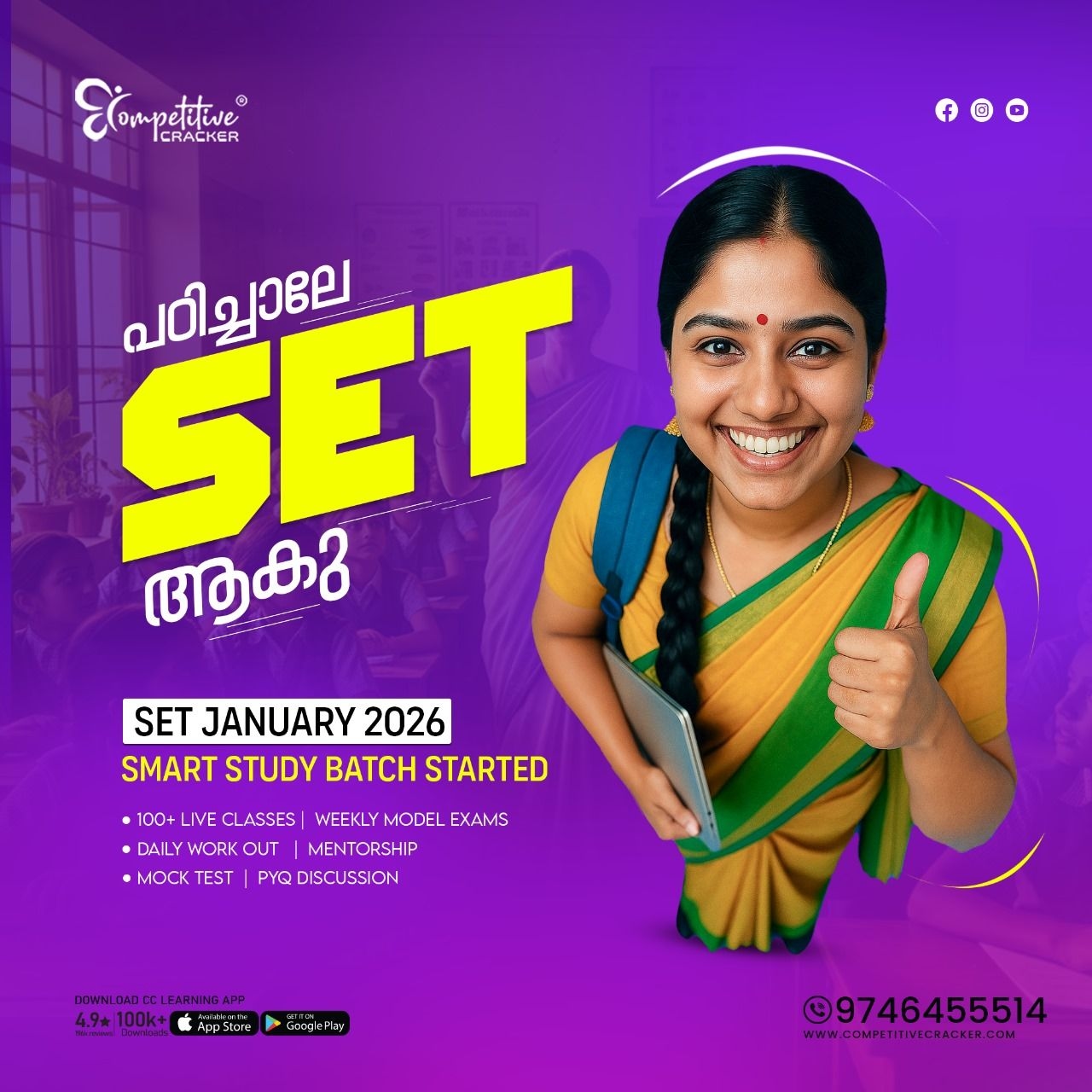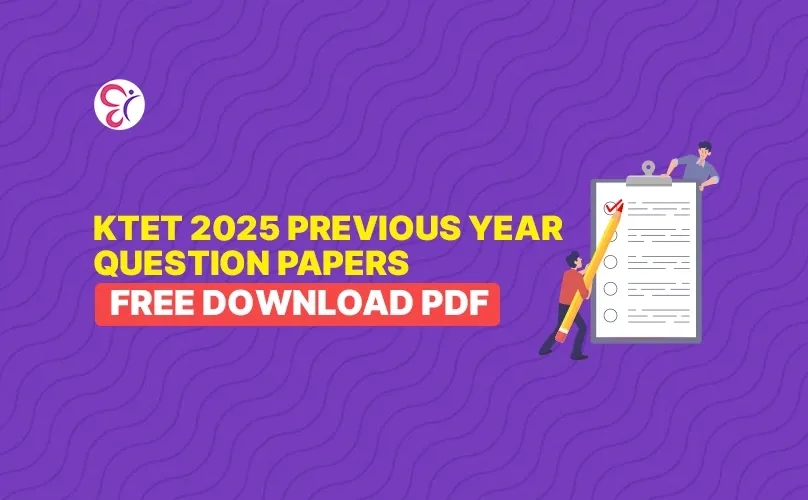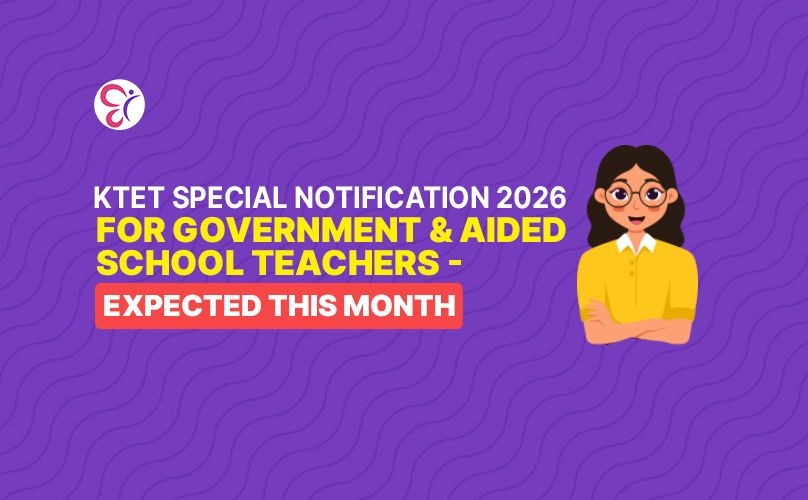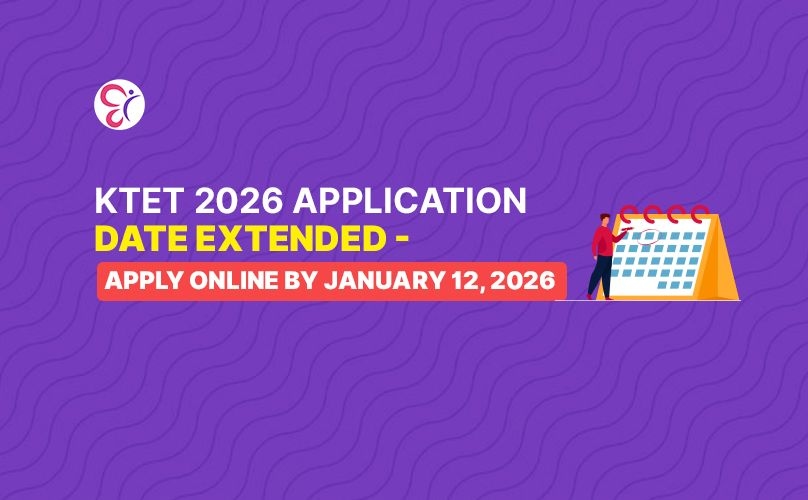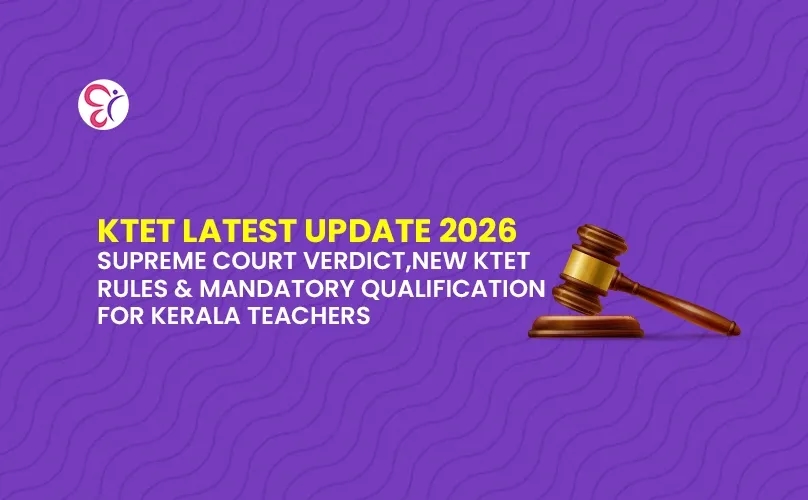Check Now! Kerala PSC Computer Operator/Analyst KWA 2025 (Cat No. 193/2024) Exam date and Syllabus is Out!
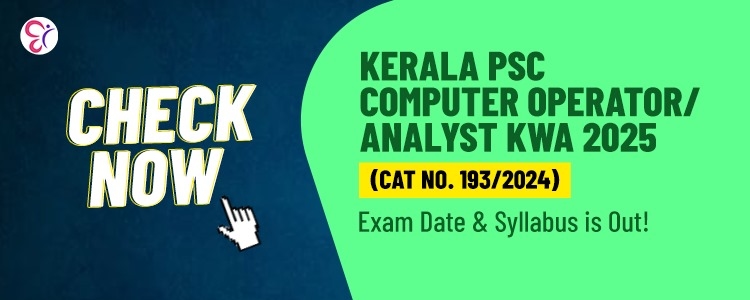
Table of Content
Kerala PSC Computer Operator/Analyst Exam Date 2025
Kerala PSC Computer Operator/Analyst Exam in Nutshell
PSC Computer Operator / Analyst Syllabus 2025
Don’t Miss this Opportunity @ KWA; Cat. No. 193/2024
Overview
Kerala PSC exam date for Computer Operator / Analyst in Kerala Water Authority is out now. As per the official data 7,606 candidates have been applied for the examination. The recruitment for the best candidates with bachelor’s degree and PGDCA will take place in June, 2025. Candidates aspiring for the post are advised to go through the important dates of the recruitment and detailed syllabus. Under take focused preparation and ace the exam in flying colours.
Kerala PSC Computer Operator/Analyst Exam Date 2025
The Kerala PSC Computer Operator / Analyst exam date is 09 June, 2025. Candidates are advised to submit confirmation before April 11, 2025 to ensure your participation in the examination programme and further recruitment process. All applicants are advised to be present at the exam centre, mentioned in the PSC Hall Ticket. Carry the printed copy of PSC Computer Operator / Analyst admission ticket 2025, a PSC approved ID card (AADHAR, Driving Licence, Election ID, etc.)
Kerala PSC Computer Operator/Analyst Exam in Nutshell
|
COMPUTER OPERATOR / ANALYST Exam 2025 in a Nutshell | |
|
Department / Firm |
KERALA WATER AUTHORITY |
|
Name of Post |
COMPUTER OPERATOR / ANALYST |
|
Pay Scale |
₹ 38,300-93,400 |
|
Vacancies |
2 |
|
Recruitment Type |
Direct Recruitment |
|
Age |
18-36 |
|
Qualification |
Bachelor's degree |
|
Confirmation Date |
23/03/2025 |
|
Admission Ticket Available Date |
26-05-2025 |
|
Exam Type |
OMR / ONLINE |
|
Exam Mode |
Objective Type MCQ |
|
Applicants |
7,606 |
|
Exam Duration |
1 Hour 30 Minutes |
|
Medium of Exam |
English and Regional Language of Your Choice |
PSC Computer Operator / Analyst Syllabus 2025
Learn the Detailed syllabus of PSC Computer Operator / Analyst Syllabus 2025.
|
PSC Compute Operator / Analyst Mark Scheme 2025 | |
|
Topic/Subtopic |
Marks |
|
I. General Knowledge | |
|
i. History |
5 |
|
ii. Geography |
5 |
|
iii. Economics |
5 |
|
iv. Indian Constitution |
8 |
|
v. Kerala – Governance and System of Administration |
5 |
|
vi. Life Science and Public Health |
4 |
|
vii. Physics |
3 |
|
viii. Chemistry |
3 |
|
ix. Arts, Literature, Culture, Sports |
4 |
|
II. Current Affairs |
8 |
|
III. Simple Arithmetic, Mental Ability and Reasoning |
10 |
|
IV. General English |
10 |
|
V. Regional Language (Malayalam, Tamil, Kannada,) |
10 |
|
VI. Computer Application |
20 |
|
Total |
100 |
KWA Computer Operator Detailed Syllabus 2025
- GENERAL KNOWLEDGE
- HISTORY (5 Marks)
- KERALA - Arrival of Europeans-Contributions of Europeans- History of Travancore from Marthanda Varma to Sree Chithirathirunnal- Social and Religious Reform movement- National movement in Kerala- Literary Sources of Kerala History- United Kerala Movement- Political and Social History of Kerala after 1956.
- INDIA – Political History- Establishment of the British- First War of Independence – Formation of INC- Swadeshi Movement- Social Reform movement- Newspapers - Literature and Arts during the freedom struggle – Independence Movement & Mahathma Gandhi - India’s independent – Post independent period - State reorganization – Development in Science, Education, and Technology – Foreign policy.
- WORLD – Great Revolution in England- American War of Independence – French Revolution- Russian Revolution – Chinese Revolution- Political History after Second World War- UNO and other International Organizations
- GEOGRAPHY (5 Marks)
Basics of Geography – Earth Structure – Atmosphere, Rocks, Landforms, Pressure Belt and Winds, Temperature and Seasons, Global Issues- Global Warming- Various forms of Pollution, Maps- Topographic Maps and Signs, Remote Sensing – Geographic Information System, Oceans and its various movements – Continents, – Nations and their specific features.
- INDIA – Physiography- States and its features, Northern Mountain Region, Rivers, Northern Great Plain, Peninsular Plateau, Coastal Plain, Climate – Natural Vegetation - Agriculture – Minerals and Industries- Energy Sources, Transport system – Road- Water- Railways- Air.
- Kerala – Physiography- Districts and its features - Rivers- Climate – Natural Vegetation - Wild life - Agriculture and research centers – Minerals and Industries - Energy Sources - Transport system – Road - Water- Railway- Air
- ECONOMICS (5 Marks)
India: Economy, Five Year Plans, New Economic Reforms, Planning Commission and Niti Aayog, Financial Institutions, Agriculture – Major Crops, Green Revolution, Minerals. Direct and indirect taxes in India, GST in Indiarationale and structure of GST, benefits of GST.
- INDIAN CONSTITUTION (8 Marks)
Constituent Assembly-Preamble-Citizenship- Fundamental Rights, Writs -Habeas Corpus, Mandamus, Prohibition, Certiorari and Quo warranto. Directive Principles of State Policy- Fundamental Duties- Structure of Governments- Union Executive, Parliament and Judiciary- State Executive, Legislature and Judiciary- Local Self Government Institutions (LSGIs)- Important Constitutional Amendments (42, 44, 52, 73, 74, 86, 91, 97, 101, 102, 103, 104)- Constitutional Authorities and their functions - Comptroller and Auditor General, Attorney General, Advocate General, Election Commission of India, State Election Commission, Union Public Service Commission, State Public Service Commission- Finance Commission- State Finance Commission-GST Council- Distribution of legislative powers- Union List- State List-Concurrent List- Services under the Union and the States- Tribunals-National Commission for Scheduled Castes- National Commission for Scheduled Tribes-National Commission for Backward Classes- Official Language-Regional Languages-Language of the Supreme Court, High Courts, etc-Special directives relating to languages
- Kerala Governance and System of Administration – (5 Marks)
Kerala State Civil Service- Quasi-judicial bodies, various Commissions, Basic facts of socio-economic development- Planning Board-Commercial Planning and Policies- Disaster Management- Watershed Management- Employment and Labour-National Rural Employment Programmes- Land Reforms- Social Welfare and Security- Protection of Women, Children and Senior Citizens-Population, Literacy, E-governance, Delegated Legislation and its controls-Legislative and Judicial controls- Constitutional law remedies against Administrative Arbitrariness- Administrative Discretion and its Controls-Administrative Adjudication-Principles of Natural Justice.
- Life Science and Public Health (4 Marks)
- Basic facts of Human Body
- Vitamins and Minerals and their Deficiency Diseases
- Communicable Diseases and Causative Organisms, Preventive and Remedial Measures
- Kerala – Welfare activities in Health Sector
- Lifestyle Diseases.
- Basic Health Facts
- Environment and Environmental Hazards
- Physics (3 Marks)
- Branches of Physics –Matter - Units, Measurements - Physical Quantities.
- Motion - Newton’s Laws of Motion - Third law – Momentum – Projectile Motion - Uses of Third Law - Achievements in space missions in India - ISRO.
- Light- Lens, Mirrors - Problems based on r = 2f - Different phenomena of Light - Rainbow - Colours of different materials – Electromagnetic Spectrum – IR rays- UV rays - X rays - Photoelectric Effect.
- Sound - Different types of Waves - Velocity of Sound in different media Resonance – Reverberation.
- Force - Different types of Forces – Friction - Advantages and disadvantages of Friction - Liquid Pressure - Buoyant Force – Archimedes Principle - Pascal’s law – Density - Relative density- Adhesive Cohesive forces- Capillarity - Viscous force - Surface tension.
- Gravitation - Centripetal Force - Centrifugal Force - Escape Velocity, Satellites - Escape Velocity - Weight Mass - value of ‘g’- 'g' in different places.
- Heat - Temperature - Different types of thermometers – Humidity - Relative Humidity.
- Work - Energy - Power - Simple problems relating to Work, Energy, Power, Levers - Different types of Levers.
- Chemistry (3 Marks)
- Atom – Molecule - States of Matter – Allotropy - Gas laws - Aqua regia.
- Elements - Periodic Table-Metals &Non-metals-Chemical Physical changes- Chemical reactions-Solutions, Mixtures, Compounds.
- Metals-Non-metals – Alloys – Acids, Bases - pH value - Alkaloids.
- Arts, Sports, Literature and Culture (4 Marks)
Arts
- Important Audio-Visual Art Forms of Kerala- Famous Places, Institutions, Personalities, Artistes and Writers related to origin, development, extension, and practice of these Art Forms.
Sports
- Famous Sports personalities of Kerala, India and World – their Sports Events, achievements and awards.
- Important Awards – Corresponding Fields , Winners
- Famous Trophies – Related Events and Sports Items.
- Number of Players in Important Sports Items.
- Important Terms associated with various Sports and Games.
- Olympics - Basic Facts, Venues / Countries, Famous Performances and Personalities- India in Olympics-Winter Olympics & Para Olympics.
- Asian Games, Afro-Asian Games, Common Wealth Games, SAF Games –Venues, Countries, Performance of India, other facts.
- National Games.
- Games - Events, Players, Achievements.
- National Sports / Games , Events of various Countries
Literature
1. Malayalam - Important Literary Movements – Icons and their first works.
2. Main works of Literature related to each movement and their authors.
3. Writers – Pen name and Nick name.
4. Famous Works and Characters.
5. Famous Quotes – Books and Authors.
6. Beginning of Journalism in Kerala – Pioneers, Journals and Publications.
7. Famous Awards/ Honours – Writers and their works.
8. Malayalam Writers who won the Jnanpith Award and related facts.
9. Malayalam Cinema - Origin, Development, Milestones, Pioneers, National Awards.
Culture
- Kerala - Important Celebrations -Places associated with such Celebrations, Important Festivals.
- Kerala – Cultural Centres, Worship Places, Cultural Leaders and their Contributions.
- Current Affairs (8 Marks)
- Simple Arithmetic, Mental Ability and Reasoning
- Simple Arithmetic (5 Marks)
- Numbers and Basic Operations
- Fraction and Decimal Numbers
- Percentage
- Profit and Loss
- Simple and Compound Interest
- Ratio and Proportion
- Time and Distance
- Time and Work
- Average
- Laws of Exponents
- Mensuration
- Progressions
- Mental Ability & Reasoning (5 Marks)
- Series
- Problems on Mathematical Signs
- Verifying Positions.
- Analogy- Word Analogy, Alphabet Analogy, Number Analogy
- Odd man out
- Numerical Ability
- Coding and Decoding
- Family Relations
- Sense of Direction
- Time and Angles
- Time in a clock and its reflection
- Date and Calendar
- Clerical Ability
- GENERAL ENGLISH
- English Grammar (5 Marks)
- Types of Sentences and Interchange of Sentences.
- Different Parts of Speech.
- Agreement of Subject and Verb.
- Articles - The Definite and the Indefinite Articles.
- Uses of Primary and Modal Auxiliary Verbs
- Tag Questions
- Infinitive and Gerunds
- Tenses
- Tenses in Conditional Sentences
- Prepositions
- The Use of Correlatives
- Direct and Indirect Speech
- Active and Passive voice
- Correction of Sentences
- Vocabulary (5 Marks)
- Singular & Plural, Change of Gender, Collective Nouns
- Word formation from other words and use of prefix or suffix
- Compound words
- Synonyms
- Antonyms
- Phrasal Verbs
- Foreign Words and Phrases
- One Word Substitutes
- Words often confused
- Spelling Test
- Idioms and their Meanings
- REGIONAL LANGUAGE (10 Marks)
Malayalam
- പദശുദ്ധി
- വാക്യശുദ്ധി
- പരിഭാഷ
- ഒറ്റപദം
- പര്യായം
- വിപരീതപദം
- ശൈലികൾ പഴഞ്ചൊല്ലുകൾ
- സമാനപദം
- ചേര്ത്തെഴുതുക
- സ്ത്രീലിംഗം പുല്ലിംഗം
- വചേനം
- പിരിച്ചെഴുതൽ
- ഘടക പദം (വാക്യം ചേര്ത്തെഴുതുക)
Kannada
1.Word Purity / Correct Word
2. Correct Sentence
3. Translation
4. One Word / Single Word / One Word Substitution
5. Synonyms
6. Antonyms
7. Idioms and Proverbs
8. Equivalent Word
9. Join the Word
10. Feminine Gender, Masculine Gender
11. Number
12. Sort and Write
Tamil
- Correct Word
- Correct Structure of Sentence
- Translation
- Single Word
- Synonyms
- Antonyms / Opposite
- Phrases and Proverbs
- Equal Word
- Join the Word
- Gender Classification – Feminine, Masculine
- Singular, Plural
- Separate
- Adding Phrases
- Computer Application (20 Marks)
MODULE 1- COMPUTER FUNDAMENTALS & INFORMATICS
-
- Components of a Computer system
- Hardware components- Hardware-Definition, Components – Control unit, ALU,I/O devices, Memory, Motherboard-functions of each. Types of PCs– Desktop, Laptop, Note book, PDA, Special Purpose computers, Super computers – Characteristics and area of use. Memory – Comparison- Primary vs Secondary memory. RAM and ROM variations, Various Magnetic and Optical Storage Devices –examples. Input Devices – Keyboard, Mouse, trackball, joystick, scanners, Digital camera, OCR, OMR, MICR, Light pen, bar code readers, QR code, Voice recognition and touch screen-Characteristics. Output Devices - Monitors, Printers, Plotter, Sound cards and speakersCharacteristics. (3 marks)
- Software Concepts - Types of software-system software and application software. System software-definition and examples. Functions of OS, Application software – definition and examples. Number systems – decimal, octal, hexadecimal and binary –Representation concepts only. Computer coding systems- EBCDIC, ASCII and Unicode-definitions. (2 marks)
- Components of a Computer system
MODULE 2 - OFFICE AUTOMATION
-
- Introduction to MS-Office
- Introduction to MS –WORD
- Introduction to MS-Office
Introduction to Word Processing, Introduction to MS Word: features, Creating, Saving and Opening documents in Word, Interface, Toolbars, Ruler, Different Menus, Keyboard Shortcut. Editing a Document. Opening Multi document windows, Editing Text – Selecting, Inserting, deleting, moving text, Previewing documents, Printing documents. Formatting Documents: Paragraph formats, Aligning Text and Paragraph, Borders and Shading, Headers and Footers, Multiple Columns. (2 marks)
-
-
- Introduction to MS-Excel
-
Worksheet basics- Creating worksheet, Definition of cell, columns and rows. Saving & protecting worksheet. Opening and moving around in an existing worksheet. Toolbars and Menus-Functions, keyboard shortcuts. Cell formatting, changing alignment, character styles, column width, date format, borders & colors. Working with formulas & cell referencing. Functions. Previewing & Printing worksheet – Page setting, Print titles, Adjusting margins, Page break, headers and footers. (2 marks)
-
-
- Introduction to MS-PowerPoint
-
Purpose of PowerPoint. Working with different views and menus of power point. Working with slides – Make new slide, move, copy, delete, duplicate, designing and lay outing of slide. Editing and formatting text, Printing presentation – Print slides, notes, handouts and outlines. Inserting Objects – Drawing and inserting objects using Clip Art's pictures and charts. Adding graphics, multimedia and special effects. Custom Animation – slide transition effects and other animation effects. (1 mark)
MODULE 3 - PROGRAMMING LANGUAGES
-
- OOP Concepts
- Principles of Object-oriented Programming: Object-Oriented Programming Paradigm, Basic Concepts of Object Oriented Programming, Benefits of OOPs, Object-Oriented Languages, Essentials of OOP (Objects, Class, , Encapsulation, Data Abstraction, Inheritance, Reusability, Polymorphism, Delegation, Message Communication), Structure of C++ Program, Creating the Source File, Compiling and Linking. (1 mark)
- C++ Basics - Preprocessors, comments, Data types, Operators, Expressions, Identifiers, Key words, Symbolic constants, Variable declaration and dynamic initialization, C++ statements, Control structures, Arrays and string handling, Specifying a Class, Defining Member Functions, its scope (1 mark)
- Visual Basic.Net
- Introduction to .NET- .NET Framework features & architecture, CLR, Common Type System, MSIL, Assemblies and class libraries. Introduction to Visual studio, Project basics, types of project in. Net, IDE of VB.NET-Menu bar, Toolbar, Solution Explorer, Toolbox, Properties Window, Form Designer, Output Window, Object Browser. Visual development & event driven Programming -Methods and events. (1 mark)
- The VB.NET Language- Variables -Declaring variables, Data Type of variables, Forcing variables declarations, Scope & lifetime of a variable, Constants, Arrays, types of array, control array, Collections, Subroutines, Functions, Passing variable, Number of Argument, Optional Argument, Returning value from function. Control flow statements: conditional statement, loop statement. GUI programming with Windows Forms, Msgbox & Inputbox, TextBox, Label, Button, Listbox, Combobox, Checkbox,Radio button etc (1 mark)
- OOP Concepts
MODULE 4 - DATABASE MANAGEMENT SYSTEMS
-
- Introduction to Database concepts
Need of database, Flat database, Database Management Systems, Characteristics of DBMS, Relational Database, Entity and Referential Integrity, Primary key, Foreign key, Database elements-Tables, records, Query, Form, Report, Client-server paradigm (1 mark)
-
- Database Query commands
Different DDL, DML, DCL commands, Creating, deleting, updating and manipulating tables using SQL commands, Applying constraints on tables, filtering using WHERE, LIKE etc. Joining tables, grouping data using Group By. Data aggregation functions (2 marks)
MODULE 5 - WEB DESIGNING
-
- Word Wide Web (www) - History, Working, Web Browsers- functions, Concept of Search Engines, Searching the Web, HTTP, URLs, Web Servers, Web Protocols. HTML, Design tools, HTML editors, Image editors. (1 mark)
- HTML - Concepts Of Hypertext, Versions of HTML, Elements of HTML, Syntax, Head & Body Sections, Building HTML Documents. Inserting Texts, Images, Hyperlinks, Backgrounds And Color Controls, Different HTML Tags, Table Layout and Presentation, Use of Font Size & Attributes, List Types and Its Tags, Use of Frames and Forms in Web Pages. (1 mark)
- JavaScript Overview, syntax & conventions. Variables, Expressions, Branching & Looping statements, Functions, Arrays Objects, Events & Document Object Model – on-Click, on-Mouse-Over, on Submit, on Focus, on Change, on-Blur. On-Load, on-Unload. Alerts, Prompts & Confirms. (1 mark)
Don’t Miss this Opportunity @ KWA; Cat. No. 193/2024
Kerala PSC Computer Operator/Analyst position in Kerala Water Authority is an amazing opportunity for candidates who fulfil the eligibility criteria. With the prompt submission of confirmation, candidates are advised to ensure their candidature in the upcoming KWA Computer Operator / Analyst exam 2025. Candidates who clear the exam by scoring above the PSC cut-off will be shortlisted for document verification. Kerala Public Service Commission publish the final rank list of candidates in the order of merit. The rank list is expected to be valid for 3 years and candidates will be advised to join based on the PSC rotation chart system and according to the final rank list. Take focus preparation and achieve your dream government job.
Trending Updates
